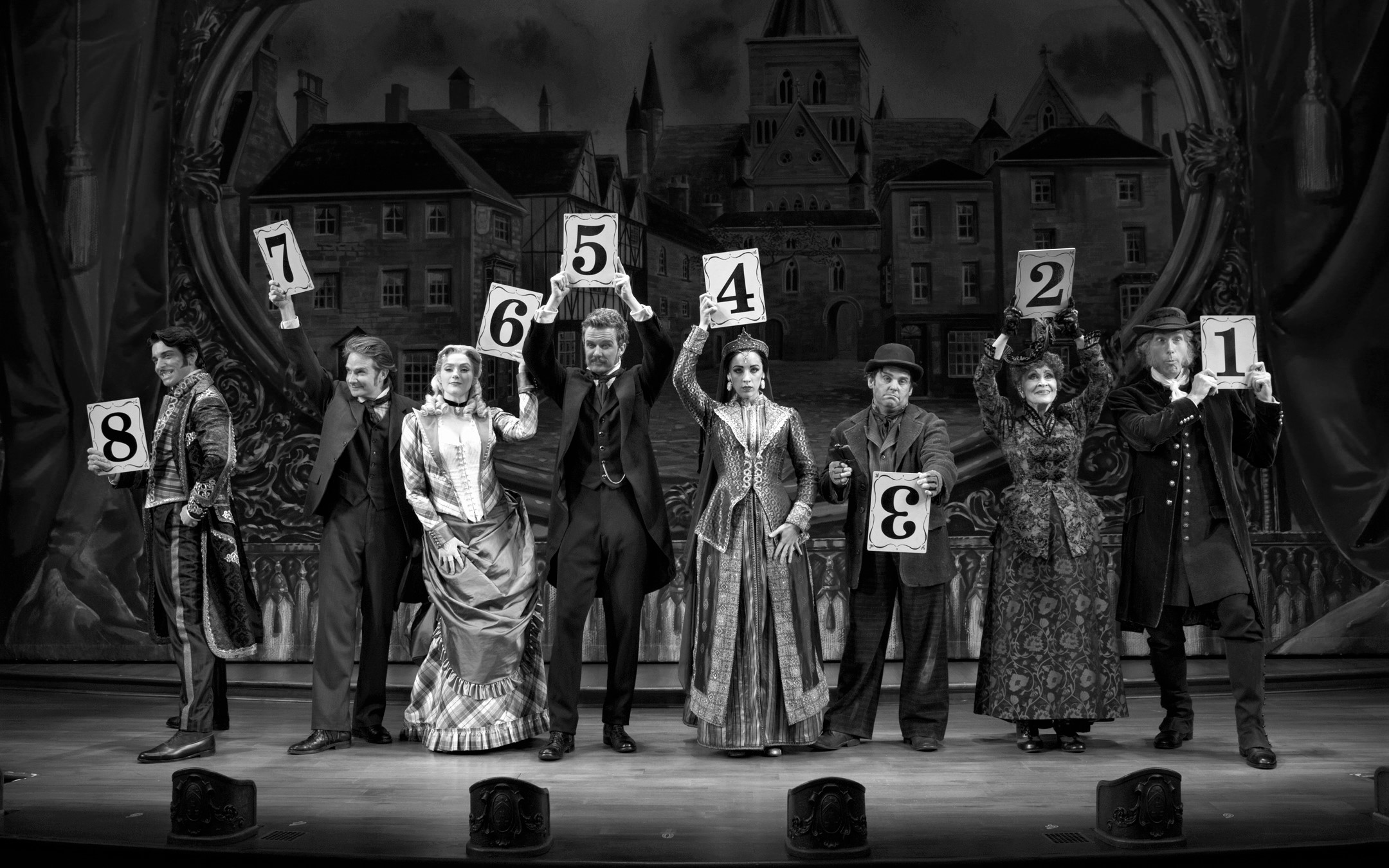The Quandary of Edwin Drood

The Mystery of Edwin Drood is one of my favorite musicals. I first discovered it a little over four years ago, after an introduction to the song "Moonfall." I fell in love quickly, especially after watching the cast play around in "Bustle Fluffah." I read the Charles Dickens source material soon after. Since then, Drood has inspired quite a lot of my personal work and aesthetic. It has given me a show that I dearly wish to direct one day. The revival cast specifically introduced me to a number of actors I now adore: Betsy Wolfe, Stephanie J. Block, Will Chase, Chita Rivera, Jessie Mueller, Andy Karl…
But then I remember. Jessie and Andy were in brownface, playing exaggerated South Asian stereotypes. Yes, that happened, on a Broadway stage, as recently as 2013.
I was uncomfortable back when I discovered the piece, especially when I wanted to share it with my Indian best friend. She found love for the piece too, but we both decried the use of brownface in the piece. You can read her brilliant piece on it here
What is particularly frustrating about the use of brownface and racial stereotypes is that it cancels out some of the more serious and important messages woven into Drood. At first glance, the musical seems like a brassy, light-hearted comedy set in a Victorian music hall. And it is. But it also deals surprisingly well with how women resist the overpowering influence of men, with how one woman was forced to become a prostitute and criminal, and even with the topics of imperialism and race. Well, it could deal with race well. Hypothetically.
Helena and Neville Landless are both interesting, complex, and truly human characters. Dickens created the twins from Ceylon (present day Sri Lanka) with remarkable empathy and depth. While Neville hews closer to aggressive stereotypes, he demonstrates a softness and kindness. Helena is demonstrated to be intelligent and strong. She still maintains her kindness as she cares for her brother and becomes close friends with Rosa Bud. Both Neville and Helena struggle with how they are treated in the English city of Cloisterham, where rumors of their past and skin color supersede their true actions—and the fact that, they too, are subjects of the British Empire. This is the topic of the song "A British Subject," featuring lyrics such as "What hope have I of blending in/With this my shade of skin?/I thought I'd cleaned my slate at last/But they anticipate my past."
The core of an interesting dive into racism and its place in the British Empire is right there in Drood already. But "A British Subject" is preceded by "Ceylon," a short song where Neville and Helena do stereotypical gestures and dances while naming random places in the vicinity of India with no thought to actual direction. "Ceylon" essentially serves to say "Helena and Neville come from a different place. They're strange and foreign!" Yes. We already knew that. And you follow how "strange and foreign" they are with a song about how they aren't so strange and foreign after all?
Not to mention their "geographically untraceable" and totally stereotypical accents. There are a few jokes dotted in about their race and background, here and there. But none of them are half as funny as the little riff on "situaAAation" in "A British Subject."
So, how to fix Drood? It's really not that difficult.
First, hire actual South Asian actors to play Helena and Neville. It's not at all out of historical possibility that South Asian people could live in England during the Victorian Era, and then work at a music hall. And if it is, then I don't care about historical accuracy. It adds nothing to the show. No more brownface, or just putting actors of other races in - if you can't get South Asian actors, don't do Drood.
Second, cut "Ceylon." It's not a bad song, but it's certainly not one of the best in the show. It doesn't carry the story forward or deepen any understanding. It just reinforces stereotypes and cancels out any potentially interesting commentary on race and imperialism in the rest of the show. Potentially replace it with a solo piece for Helena and Neville. I propose a song for Neville after he is accused of murdering Edwin Drood and gets beat up by the townspeople of Cloisterham. Let his feelings and response shine. Give him some more humanity.
Third, say goodbye to the stereotypical accents and racist jokes peppered throughout the script. There aren't many, and there's so many other, better laughs in the show that they will not be missed. If someone is really attached to those jokes, they desperately need to take a step back and reevaluate their priorities. I guess wait for me to announce my production of Drood implementing these changes. It might happen!
While this article is about my personal experience with Drood, I want it to serve as a reminder to everyone that you must be critical and aware of your favorite shows and potential problems they might have. That doesn't mean you have to stop liking it - you just have to look deeper and recognize problematic elements, and then engage with them.
Or, maybe better yet: instead of trying to patch up the problematic parts of past shows, maybe we should work on giving platforms to diverse new voices in theatre. But so long as revivals and productions of shows from the past keep getting put up, we must look critically and closely. No show is sacred.
(Photo by Joan Marcus)




